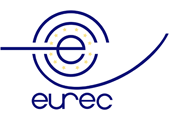menu
- Home
- National Information
- EC-Activities
- EUREC-Activities
- Legislation
- Training Materials
- Literature
- Events
- Newsletter
supported by:

Eurecnet - Training material details
Training material details
Research ethics. A reader
Author(s): Elliot, Deni; Stern, Judy E.
Document type: Book
Year: 1997
Pages: 12
Source: Publishing house: University Press of New England
Language(s): English
Classification
National background: United StatesCategory: Non-EU Training Material for Research Ethics
Subject areas: Conflict of interest; Ethical research (fraud and misconduct); Human experimentation
Content: Case studies
Issues touched: Autonomy, respect, informed consent, subjects unable to consent, role of representatives Beneficence, non-maleficence, risk for the subject Justice, benefits/burdens, research without benefit for the subject, placebos/standard therapy; Social impact of research, economic benefits, risks for third parties Social background of research, conflicts of interest, researcher vs. doctor, commercialisation Fabrication, falsification, plagiarism; Ethics committees, research protocols Ethics committees, research protocols
Audience: Students of natural sciences
Estimation
Theoretical quality remarks: The book is subdivided into 9 chapters: (1) "Teaching and Learning Research Ethics" contains an article on teaching research ethics, including some practical advice for teachers. (2) "Morality and Scientific Research" contains an article establishing a close link between morality and rationality which is straight-forward and interesting, but in some respects questionable. (3) "Examples of Scientific Misconduct" contains an introduction, followed by 4 articles/narrations on authentic cases of scientific misconduct. (4) "Relationships in Laboratories and Research Communities" contains an introduction, followed by 2 case studies with questions for discussion and 1 article oon fight over data. (5) "Conducting, Reporting, and Funding Research" contains 2 introductions, followed by 3 case studies with questions, 5 articles and the "Guidelines on Authorship" of the International Committee of Medical Journal Editors. (6) "Conflicts of Interest and Conflicts of Commitment" contains an introduction, followed by 2 case studies with questions and 1 article on commercial interference. (7) "Institutional Responsibility" contains an introduction, follwed by 3 case studies with questions, a statement by the Committee on Science, Engineering and Public Policy and 2 articles on misconduct. (8) "Animal Experimentation and Ethics" contains an introduction on the ethical basis of animal protection, followed by 3 case studies with questions, 2 articles on present US regulations and on the philosophical basis of the animal rights movement. (9) "Human Experimentation" contains an introduction, followed by 3 case studies with questions, the Nuremberg Code, the Helsinki Declaration and 1 article on radiaton experiments.Didactical quality: Didactically prepared material
Overall estimation: worth considering
Estimation remarks: Some of the case studies may be worth consdiering for course-work, and some of the articles (from Science and other journals) may also be valuable for discussion. However, none of the chapters displays a really comprehensive approach to it's topic, the introduction tends to present rather specific views and the selcetion of articles often apperas slightly arbitrary.
